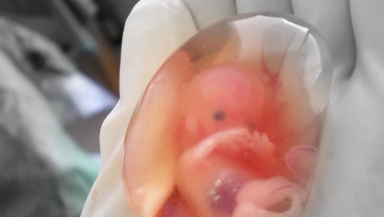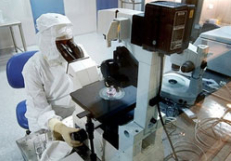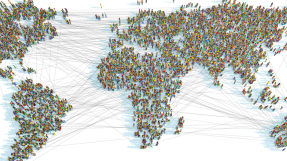
Fertility clinics in the US are assisting parents to choose their baby's gender under a controversial practice that is legal in some countries.
It is called family balancing or nonmedical sex selection, according to the Wall Street Journal.
"They usually have one, two or three children of one gender," said Daniel Potter, medical director of HRC Fertility, a California based facility which provides the service.
Women who want to select their baby's gender undergo in vitro fertilization (IVF) to make embryos that are tested before being implanted.
The tests, called pre-implantation genetic diagnosis (PGD) and IVF can cost $15,000 to $20,000 per cycle and is not covered by insurance plans.
Last June, the American Society for Reproductive Medicine issued its position on the subject, saying that practitioners are under "no ethical obligation to provide or refuse to provide non-medically indicated methods of sex selection."
However, the ethics committee of the American Congress of Obstetricians and Gynecologists opposes the practice of sex selection.
"We don't want people to use technology that's really intended to help couples with medical needs for non-medical reasons," said Sigal Klipstein, head of the committee, adding that IVF is very safe with minimal risks.
Potter said half of the patients he attends to for non-medicl sex selection are from overseas.
Director Arthur Caplan of the division of medical ethics at New York University School of Medicine, said non-medical sex selection can become a smokescreen for families who want boys.
"When you are treating the fertile in order to produce something that they prefer as opposed to a disease, I do think you're really opening the door to a potential slope toward eugenics," he said.
Program Director David Kaufman of the National Human Genome Research Institute said he doesn't expect a trend to emerge for designer babies.
Joel Batzofin, medical director of New York Fertility Services in Manhattan, said about 20 percent of patients come for sex selection.
"If people want to avail themselves of the technology, why not?" Batzofin said. "They're not hurting anyone. They're paying for it. [The American Society for Reproductive Medicine] thinks that it's OK."


















